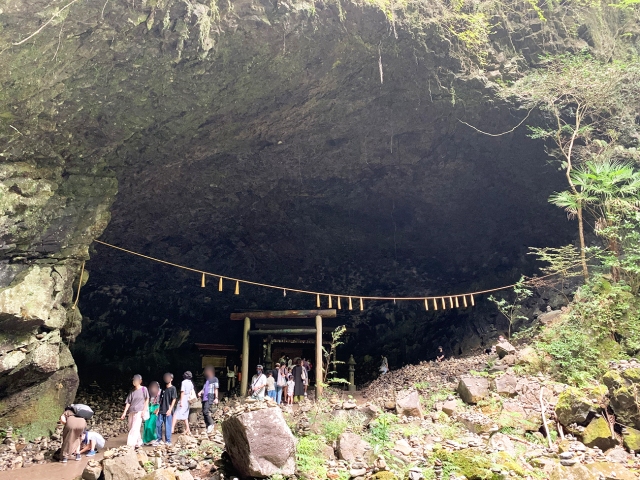
An unsual tourist site shrouded in intrigue and mystery.
It’s no exaggeration to say that Amano Iwato in Takachiho, Miyazaki Prefecture, is the most famous cave in Japan. Literally translated as “Heavenly Cave”, this rocky chamber is famous for being the place where the sun goddess Amaterasu was said to have hidden, according to the Kojiki and Nihonshoki, respectively the oldest and second-oldest books of classical Japanese history.
According to the myth, Amaterasu hid herself in the cave after a dispute with her impetuous younger brother Susano-no-Mikoto, bringing darkness to the land until she was eventually lured out by the goddess of mirth with laughter and a mirror, bringing light to the world again.
▼ The legend lives on today at Amano Iwato and the nearby Amano Iwato Shrine (pictured below)
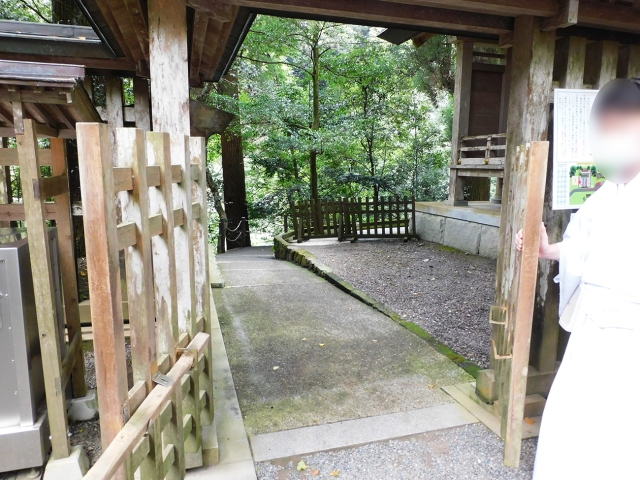
The wider Takachiho town is also considered a holy place for people in Japan, as it’s said to be the spot where Amaterasu’s grandson Ninigi-no-Mikoto descended from heaven — an event known as “Tenson Korin”. These myths blur with reality in Japan, as Ninigi-no-Mikoto and Amaterasu are said to be ancestors of Japan’s modern-day emperor.
▼ The town where the emperor’s ancestors descended from the sun.
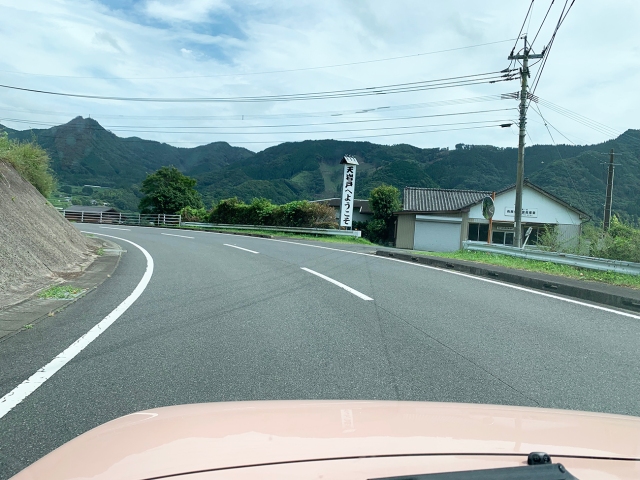
Takachiho and Amano Iwato draw thousands of tourists every year, and this year, our reporter Seiji Nakazawa was amongst them, driving along the country roads to visit the sacred destination.
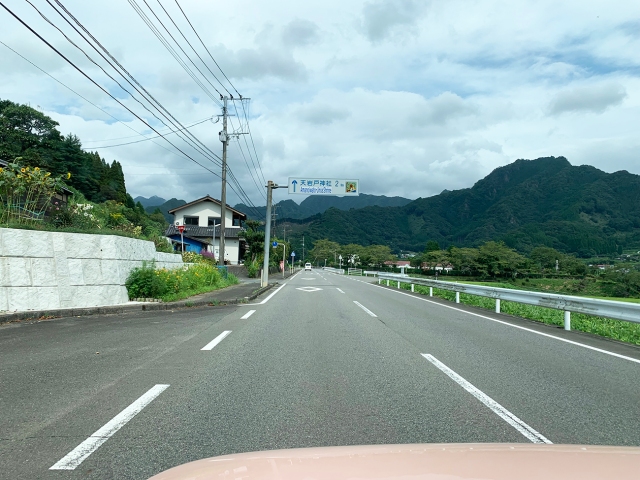
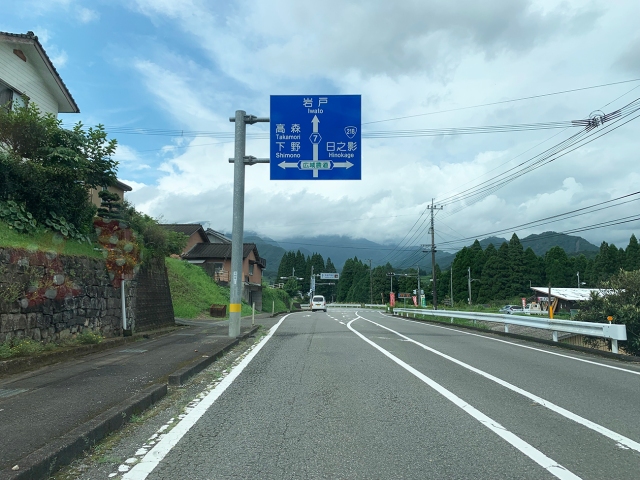
▼ Upon arriving in the area, Seiji made his way to Amano Iwato Shrine to pay his respects.
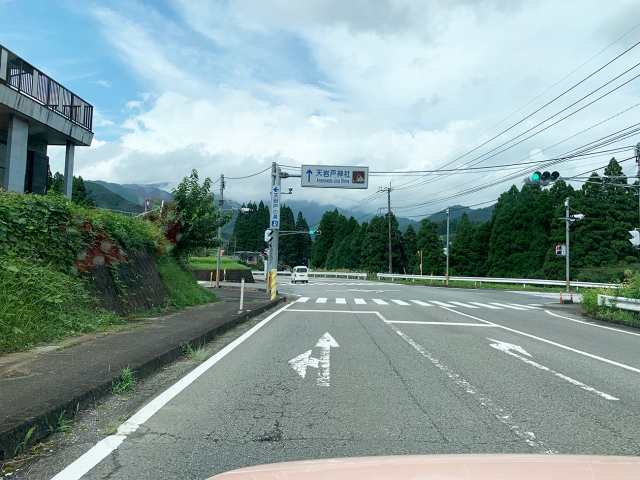
After parking at the nearest parking lot, Seiji got a sense of how popular this place is with tourists, as it’s located by a shopping street and has a stop for tour busses right out the front.
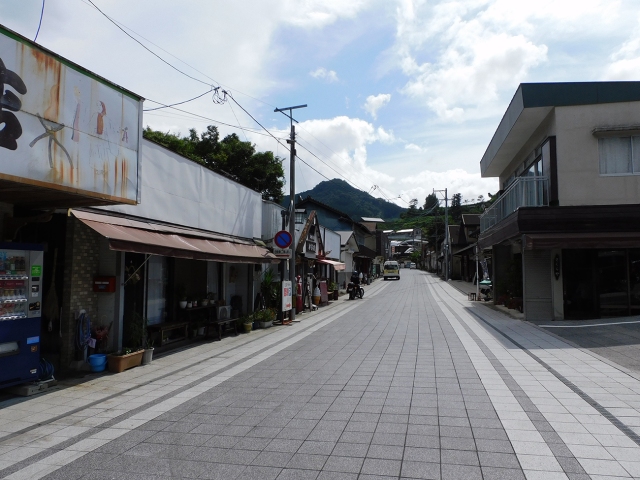
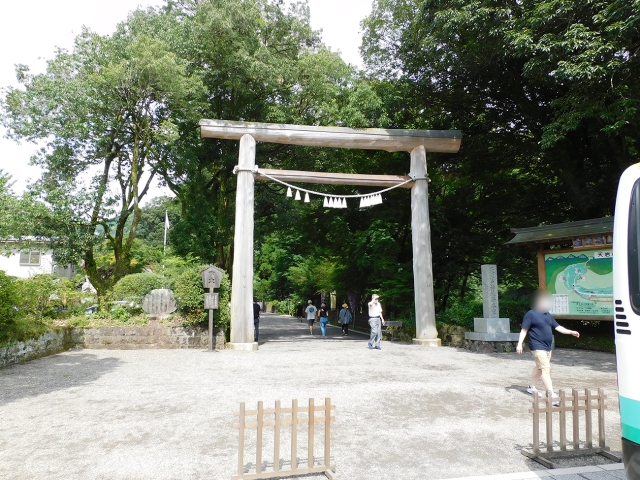
However, as expected of a spot famous for its mythology, once you pass through the torii gate, you’re immediately overcome by a quiet atmosphere that feels sacred. Takachiho is surrounded by mountains, and it was a midsummer day so the road outside was steaming, but the moment Seiji passed through the torii gate, he suddenly cooled off.
▼ Is this the effect of the gods?
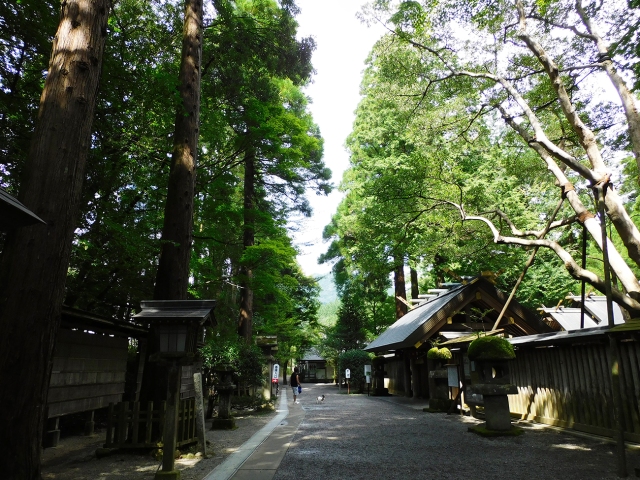
Amano Iwato is a forbidden cave where no mortals are allowed to enter, as it’s said to be the place where a sacred shimenawa rope was used for the first time in Japan. Amaterasu’s fellow deities were said to have placed the shimenawa across the cave to seal it off once the sun goddess had emerged from it, so that she wouldn’t be able to hide there again.
▼ Amano Iwato is located behind the shrine’s main worship hall, and though it’s off-limits to visitors, you can view it from a distance with the guidance of a priest.

Those who wish to participate in the viewing don’t need to register or pay a fee — simply gather at the meeting place at the dedicated times listed on the sign below. A priest will guide visitors to the viewing spot behind the shrine once every 30 minutes from 9 a.m. until 4:00 p.m., aside from a lunch break at 12:30 p.m., and then one final time at 4:40 p.m.
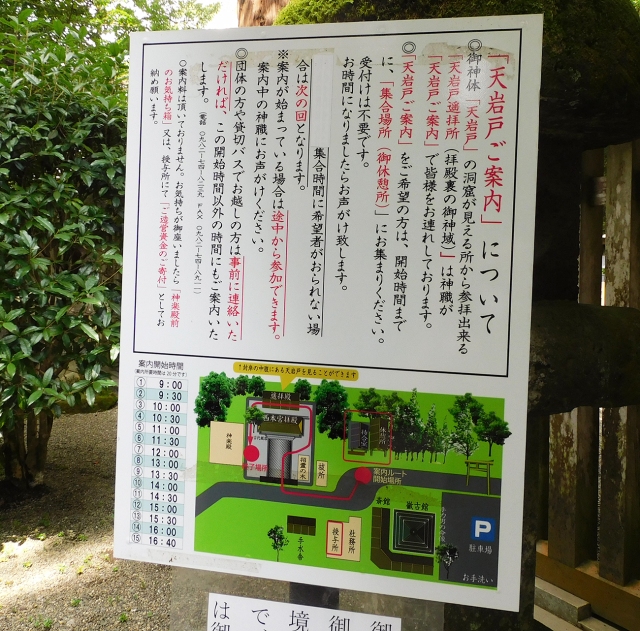
Seiji gathered at the meeting place at one of the designated times, and the priest began to explain a number of things about the shrine and its trees to the group in Japanese, making it feel like a free mini tour.

The laid-back atmosphere suddenly changed to a solemn one as the priest stepped up to conduct a purification ceremony, an important part of the tour to purify the group before proceeding to the holy site.
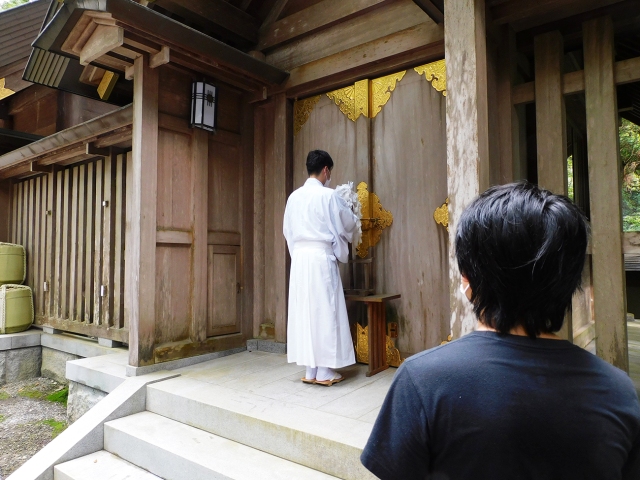
The priest then made his way over to the side door, where he reminded the group that photos were prohibited beyond this point.
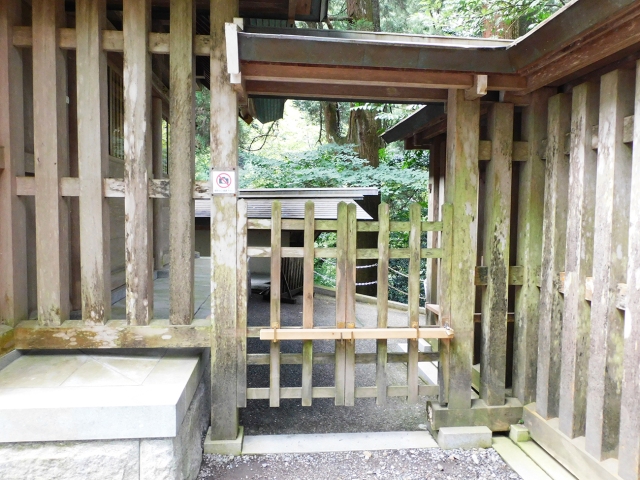
Entering through the wooden gate, Seiji was led down a path behind the worship hall, and it didn’t take long for them to arrive at the observatory, which was equipped with an offertory box. Looking beyond the offertory box, Seiji was able to see a river flowing far below, and the priest explained that Amano Iwato was located on the opposite bank.
When Seiji looked over at the opposite bank, he was surprised to see there was in fact a cave there, and this is where the sun goddess once resided. He blinked a few times, trying to take the enormity of it all in.
▼ Behold Seiji’s recreation of the scene — a sheer cliff below, dense forest above and the cave and sacred rope in between.
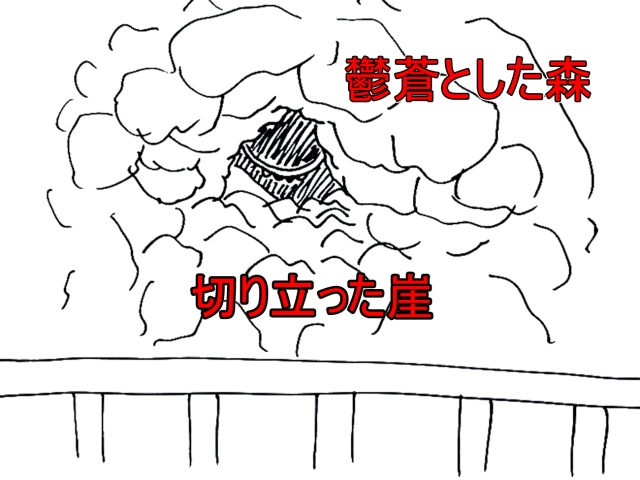
The cave was certainly safe from mere mortals — unless you had the power of flight, you’d have to be an adept climber to navigate the cliffs from the observatory.
▼ Seiji on the right, cave on the left, and flowing river in between.
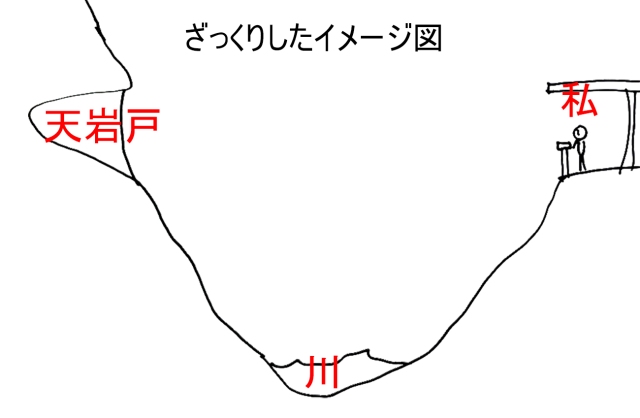
Seiji had always thought of Amaterasu as an indoor person, due to her time in the cave, but looking at the location, Seiji began to wonder if the goddess was actually an outdoorsy type, perhaps even a climbing enthusiast.
Visiting the actual site mentioned in the myth made Seiji appreciate the legend and its deities even more. And when he said one final prayer at the shrine, he was touched to see a replica of the sacred mirror there.
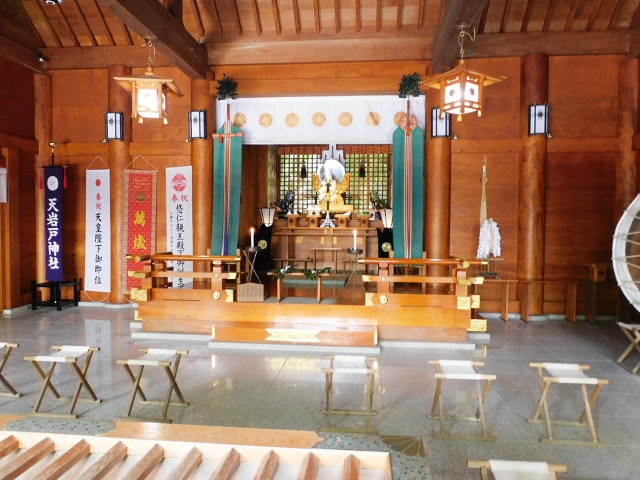
▼ The mirror that helped to lure Amaterasu from the cave.
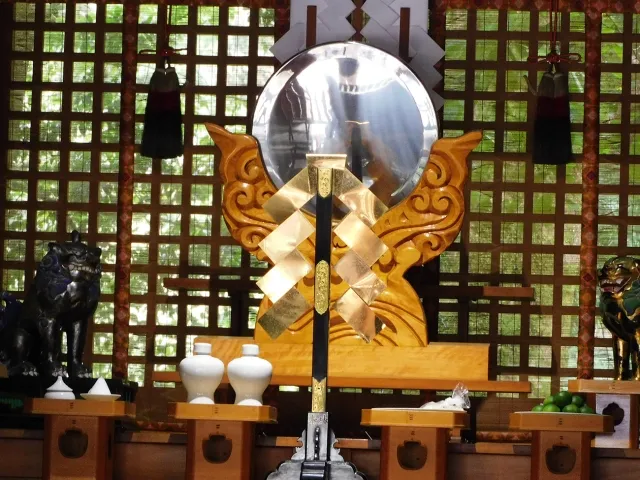
Following his visit to the shrine, Seiji made his way to another popular site nearby — a larger cave called Amanoyasugawara, which is said to be the spot where eight million gods gathered when Amaterasu shut herself inside the cave.
▼ The entrance to Amanoyasugawara
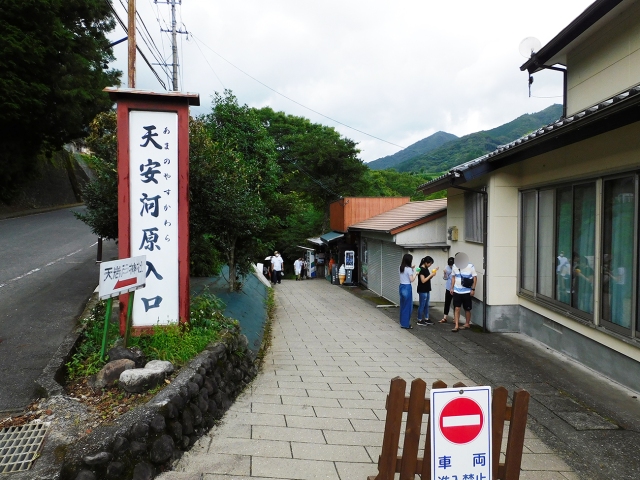
▼ The riverside walk to Amanoyasugawara is wonderfully calm and tranquil.

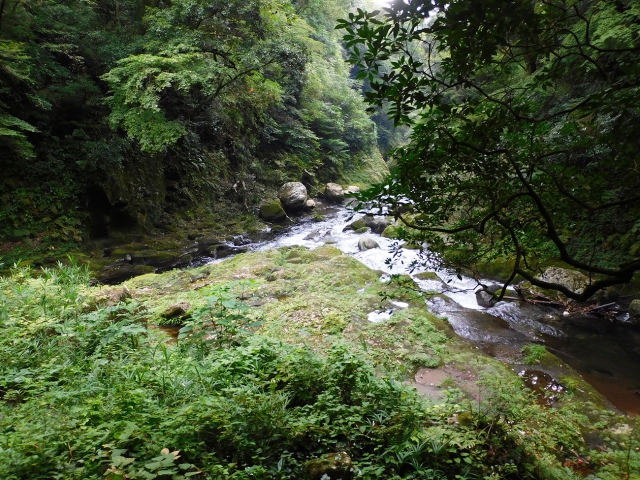
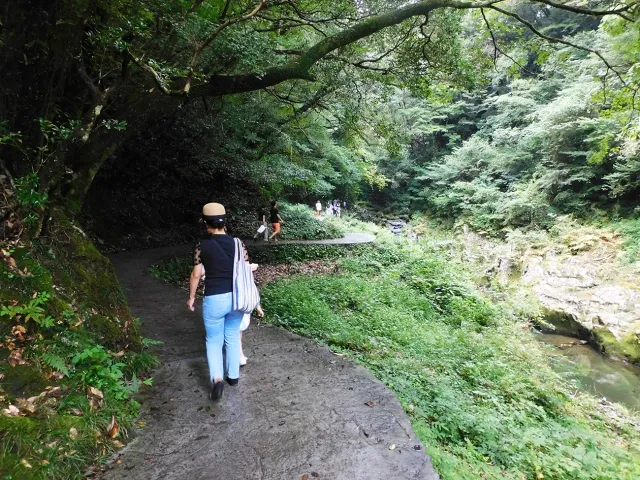
▼ The path ends at Amanoyasugawara
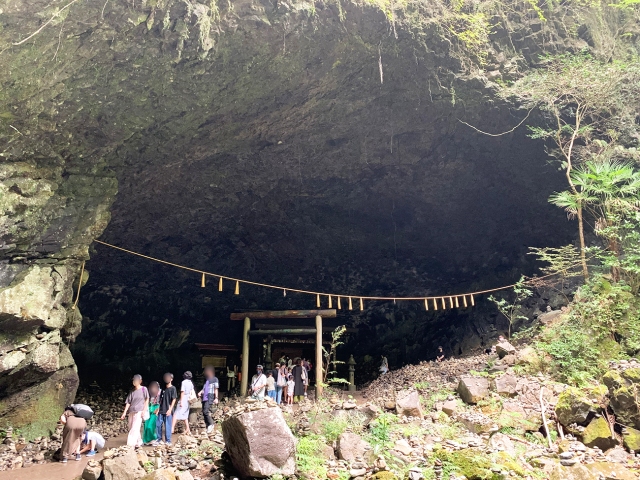
This cave has an otherworldly atmosphere — you can almost feel the spirit of the gods watching over you.
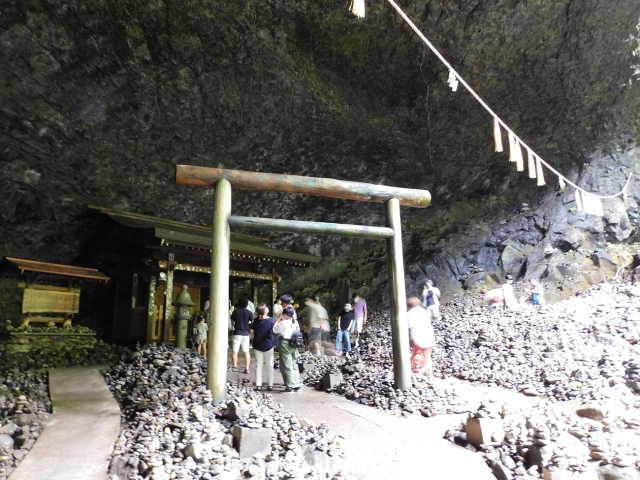
It’s believed that if you stack rocks and make a wish here your wish will be granted, which is why you’ll find thousands of stacked stones in the area.
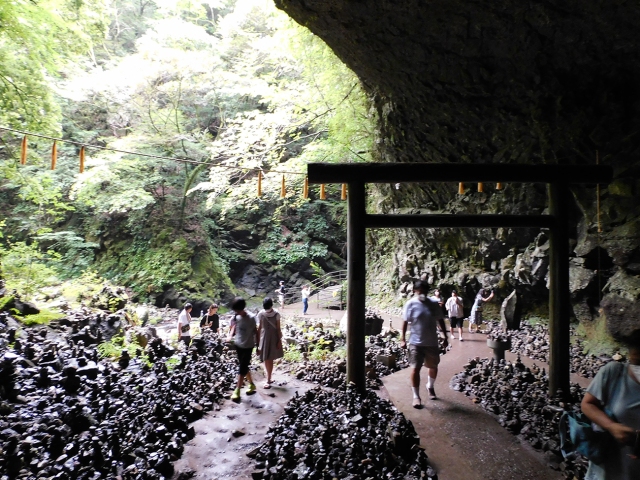
These mysterious-looking rocks, and the shrine nestled at the back of the cave, add to the mystical atmosphere.
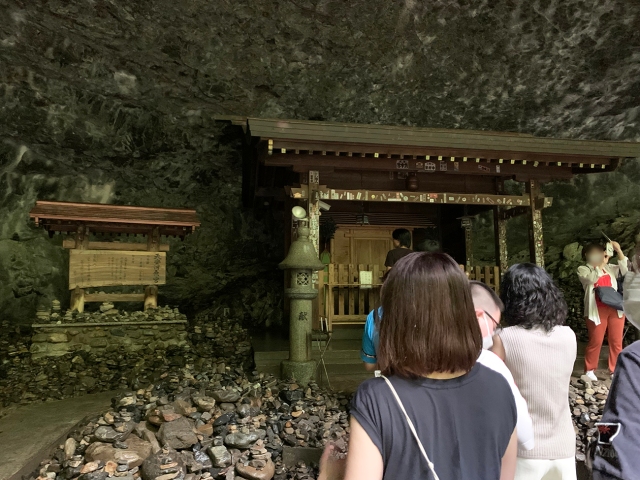
The three sites Seiji visited are some of the most intriguing in the country, and he highly recommends everyone make the trip to Miyazaki at least once in their lives, if not for the ancient mythology, then for the Pokémon manhole covers with Exeggutor, from another land of myth!
Shrine Information
Amano Iwato Jinja / 天岩戸神社
Address: Miyazaki-ken, Nishiusuki-gun, Takachiho, Iwato 1073-1
宮崎県西臼杵郡高千穂町大字天岩戸1073-1
Open: 8:30 a.m.-5:00 p.m. every day
Website
Photos ©SoraNews24
● Want to hear about SoraNews24’s latest articles as soon as they’re published? Follow us on Facebook and Twitter!

No hay comentarios:
Publicar un comentario